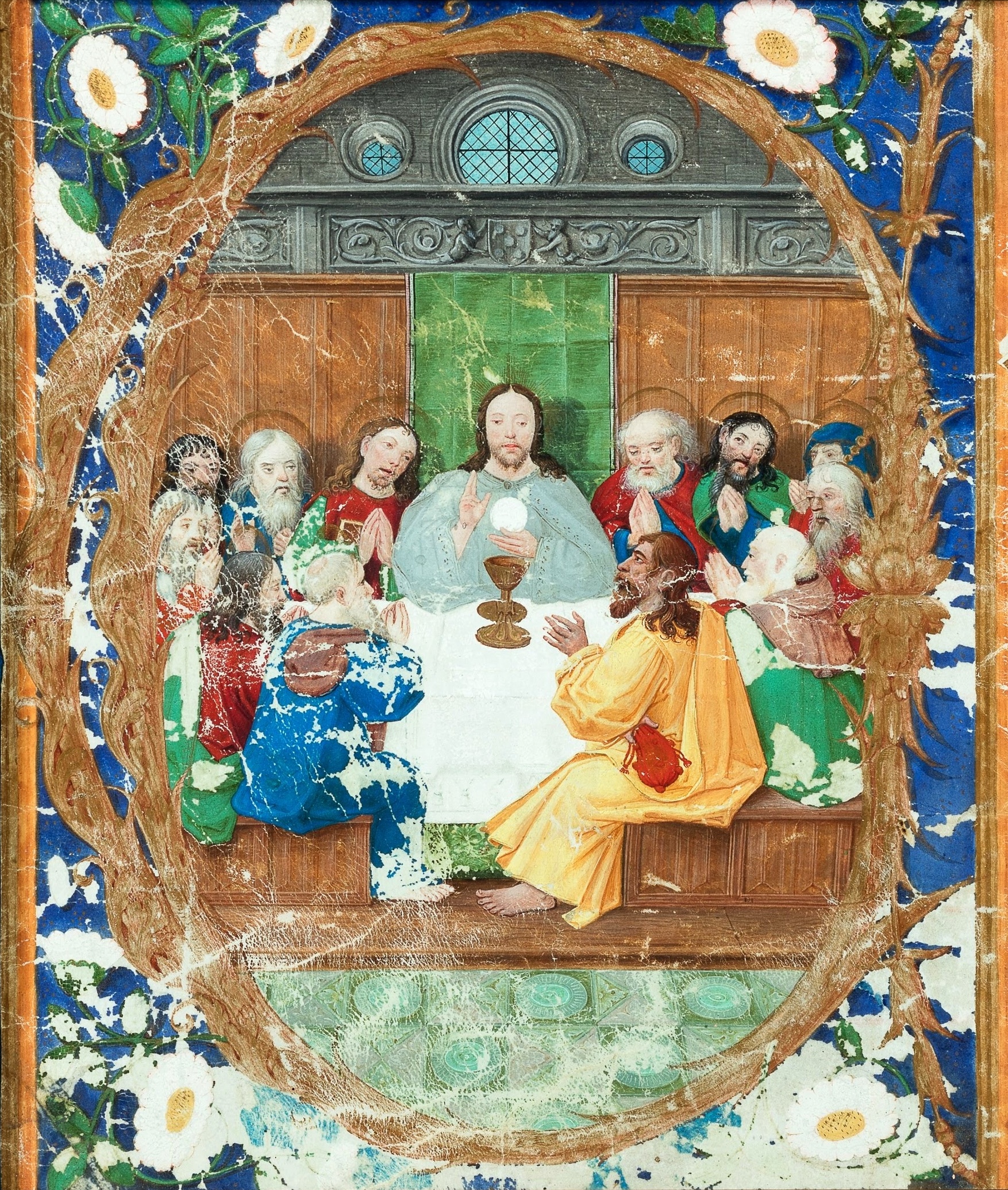The Jews then disputed among themselves, saying, "How can this man give us his flesh to eat?" So Jesus said to them, "Truly, truly, I say to you, unless you eat the flesh of the Son of Man and drink his blood, you have no life in you. Whoever feeds on my flesh and drinks my blood has eternal life, and I will raise him up on the last day. For my flesh is true food, and my blood is true drink. Whoever feeds on my flesh and drinks my blood abides in me, and I in him. - Jhn 6:52-56 ESVDid Jesus truly speak in this instance about his flesh and blood? And did he suggest a literal eating of his flesh and drinking of his blood? Early Christians were accused of such cannibalism.
Now the story about the initiation of young novices is as much to be detested as it is well known. An infant covered over with meal, that it may deceive the unwary, is placed before him who is to be stained with their rites: this infant is slain by the young pupil, who has been urged on as if to harmless blows on the surface of the meal, with dark and secret wounds. Thirstily - O horror! they lick up its blood; eagerly they divide its limbs. By this victim they are pledged together; with this consciousness of wickedness they are covenanted to mutual silence. -Octavius (Minucius Felix), chp.IX.
". . . Mindful therefore of his death and resurrection, we offer you this bread and cup, giving thanks to you because you have found us worthy to stand before you and serve you. And we beg you to send the Holy Spirit upon the offering of the holy church and gather into one all who have received it . . . that we may praise and glorify you through your son Jesus Christ, through whom is glory and honor to the Father and the Son and the Holy Spirit, in your holy church both now and forever. Amen."John's Gospel does not specifically record Jesus' establishing the Supper. Since John wrote after the destruction of Jerusalem in 70 A.D. there was no need. The other Gospels have this account (Matt. 26:26-28; Luke 22:17-20). John's task was to deepen believers' understanding of the Eucharist and to invite meditation upon Jesus' discussion of himself as the Bread of life. However, great problems arose over such meditation across the centuries as men sought to solve the Jewish question:
The Jews then disputed among themselves, saying, "How can this man give us his flesh to eat?"As a result of such attempts we have long philosophical essays, thousands of sermons, pronouncements by church councils, arguments and threats leading to wars, murders, the destruction of property and on and on. Here are but a few of the questions that have arisen.
Is the Eucharistic bread and wine truly the body and blood of Christ? And if so, how is this possible? Does a miracle happen when the words of Christ are spoken by the priest or pastor presiding over the gathering of believers so that the very substance of the bread and wine are changed into the body and blood of Christ? Granted, the bread and wine still look, taste and feel as before, but have they indeed changed? And if so, does this transformed bread and wine remain as the body and blood of Christ even after the Eucharistic celebration has ended? And does that mean that believers should worship these elements, kneel before them, even pray to them, because they are the presence of the living Christ? Is such a celebration a sacrifice anew of Christ's body and blood, even though blood is not again shed?
I will not offer answers to all these and many other related questions in this short blog. If you want to explore them in great detail (at least from a Lutheran viewpoint) I point you to an excellent book: The Lord's Supper by John R. Stephenson (2003 by The Luther Academy). Here is Dr. Stephenson's conclusion.
"The torrent of our human words, whether wise or foolish, pious or ungodly, must subside before the majesty of the words, deeds, and very being of the Word made flesh for our sakes. Luther once noted the apostles' silence as Jesus founded the Blessed Sacrament—"Here they keep silent and simply believe." Before and after all our proclamation and catechesis, their successors in office do well to hold our tongues with the Twelve. They briefly reclined with their Lord at table, and we spend long hours seated at our desks in study. True theology, which is a pondering (Luke 2:51) and keeping (Luke 8:21) of the Word to be practiced by laity as well as clergy, fitly moves from a seated to a kneeling posture as we realize how "My help comes from the Lord, who made heaven and earth" (Ps. 121:2). With the Magi, we fall in worship befrore our enfleshed God (Matt. 2:11).
With other afflicted children of our first parents, we kneel to crave His aid (Matt. 8:2). With Peter, James, and John, we adore in Him the embodied beauty of God (Matt. 17:6). True theology rejects any separation of study from piety, for the two become one in the single, two-sided reality of passive and active worship. As our minds begin by God's gift to grasp Jesus' real identity and our souls contemplate the love that He keeps on lavishing upon us (John 15:9), we shall share to the full Luther's heartfelt love of "this dear, blessed Supper." When awe-filled silence gives way to speech and song, we can do no other than cry out with our forbears in the Church of the Augsburg Confess, "For thy consoling Supper, Lord, / Be praised throughout all ages!"

